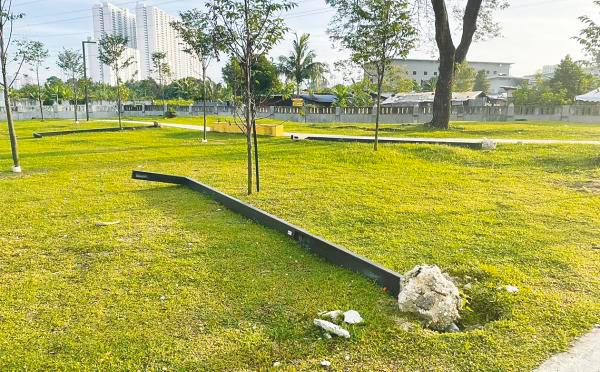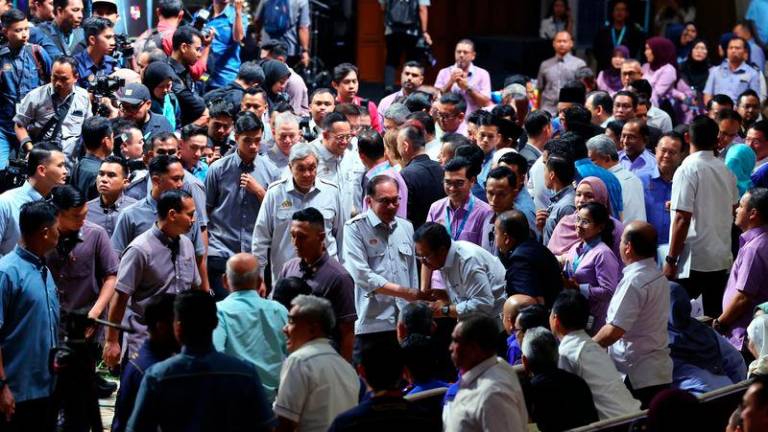I RESIDE in Taman Maluri, Cheras. For some time, residents here have fallen prey to serious acts of vandalism occurring within the small recreational park situated in the residential precinct along Jalan Pria 4.
There are 41 lamp posts within the enclave, all of which have been vandalised, giving rise to safety concerns for park users.
Several lamp posts have been uprooted from their original spots, indicating that the vandals are likely searching for copper wires to sell for monetary gain.
Additionally, the fencing surrounding the futsal court has been taken down, suggesting that individuals may be dismantling it to trade the metal scrap.
Numerous complaints regarding these acts of vandalism have been lodged with the Kuala Lumpur City Hall.
Regrettably, the authorities have yet to take concrete actions to address the issues, resulting in ongoing inconveniences for residents who use the park.
To help overcome the vandalism menace, local authorities should implement community service and publicise it to instil fear of public embarrassment among perpetrators.
This approach will be more effective in fighting vandalism compared with other punishments such as issuing compounds or fines.
The concept underlying community service is twofold: it seeks to mete out punishment and facilitate the rehabilitation of offenders by compelling them to contribute to the community. This approach aims to instil a sense of civic duty, fostering the hope of discouraging subsequent transgressions.
Moreover, community service can yield broader societal advantages, such as providing manpower for charitable organisations or public services, and helping alleviate some of the fiscal strain on the prison system.
Vandalism by-laws enforced by the various local authorities are inadequate to rid the nation of this problem.
There is a need for new federal legislation to deal with this issue by mandating compulsory community service to shame the culprits and implementing stricter regulations for habitual offenders.
Those found guilty of committing any act of vandalism should be required to perform community service for a number of hours to be determined by the relevant authorities, not exceeding 240 hours, under the supervision of a probation officer.
Community service, also referred to as community restitution, constitutes a punitive measure designed to redress the harm inflicted upon a community by an offender’s wrongdoings.
Judges frequently mandate individuals to engage in community service as a supplementary or alternative penalty to incarceration, fines or probation, with the overarching goal of fostering a tangible positive impact on the affected community.
Vandalism has become a social menace where anything public is not spared. Facilities such as recreational parks, toilets, bus stops and even the LRT and MRT stations have become targets for these vandals.
Acts of vandalism abound in every nook and corner of the country as can be seen with fire hydrants, garbage bins, lifts in low-cost housing and public toilets.
While vandalism in Malaysia may not have reached the severity levels as seen in many countries in the West, the extent of damage it causes still presents a significant problem that must be addressed effectively.
The negative behaviour exhibited by some Malaysians underscores the urgent need to introduce community service as a means to combat vandalism.
To ensure the effectiveness of existing and proposed laws, enforcement personnel must carry out their tasks more responsibly while the public must serve as the eyes and ears of the authorities.
In addition, educational and awareness campaigns to prevent vandalism must be carried out proactively.










